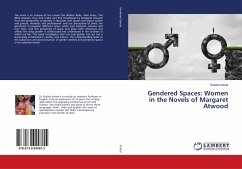Inspired by the Hegelian concept of dialectics, the conflict between the rulers and the women converges on a practice of drama of resistance as seen in the two plays studied in this book. Resistance against what? This is the fundamental question raised in the book; it is not enough to resist. This power tussle, this empowerment game, is played out on the field of Frederick Jameson's ideologeme, understood as "the smallest intelligible unit of the essentially antagonistic collective discourses of social classes." This ideologeme, in the case of African societal discourses, is encapsulated in gender equality, patriarchy, race affirmation, the ethical values of hard work and honesty, and in scientific and technological know-how. The book explores the postmodernist theoretical fantasies of utopia and dystopia, both generally and with respect to gender in particular, and has argued that text-based anonymity presents new exciting opportunities for identity creation and subjectivity.
Bitte wählen Sie Ihr Anliegen aus.
Rechnungen
Retourenschein anfordern
Bestellstatus
Storno








